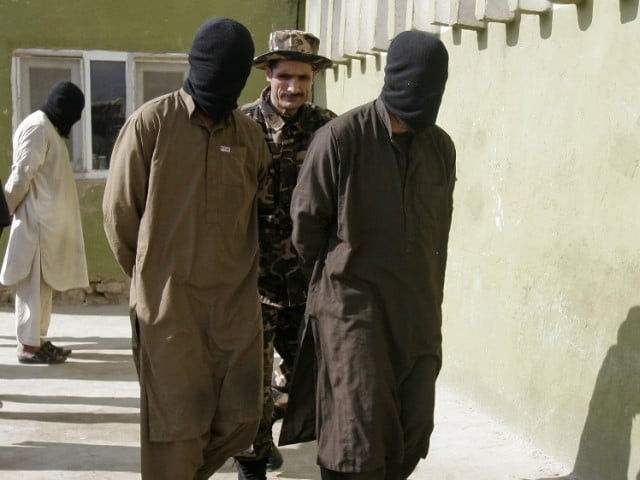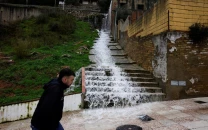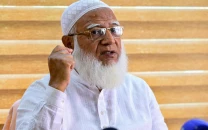Pakistan 'releases' two senior Afghan Taliban commanders, say sources
Security experts in Kabul claim release is result of recent US-Taliban talks

Islamabad declined to comment on the alleged release, with Foreign Ministry spokesperson Mohammad Faisal telling reporters that he would “not like to comment on media reports”. PHOTO: REUTERS/FILE
Authorities in Islamabad declined to comment on the alleged release, with Foreign Ministry spokesperson Dr Mohammad Faisal telling reporters that he would “not like to comment on media reports”.
Security experts in Kabul said the move could be a result of talks launched by US special representative Zalmay Khalilzad with the Taliban.
Earlier this month Khalilzad met Taliban leaders in Qatar in an effort to find a way to end the 17-year-old war in Afghanistan.
The Taliban’s co-founder and former second-in-command, Mullah Abdul Ghani Baradar, was released after high-level negotiations, three senior Taliban members told Reuters, speaking on the condition of anonymity. Mullah Abdul Samad Sani, another senior Taliban commander, was also released.
Pompeo hopes Pakistan will achieve goals set-out by US
A senior official in Afghanistan, also speaking on condition of anonymity, said Afghan authorities believe Islamabad this week released Baradar and Sani, along with Mullah Mohammad Rasul, a third Taliban figure.
Rasul is the leader of the High Council of Afghanistan Islamic Emirate, a Taliban group in Afghanistan, the Afghan official added.
Baradar, who coordinated the group’s military operations in southern Afghanistan, was arrested in 2010 by a Inter-Services Intelligence (ISI) and US Central Intelligence Agency (CIA) team.
“Our beloved leaders have joined us back and we are celebrating their freedom,” said a senior member of the Afghan Taliban in Afghanistan’s Helmand province.
He said the Taliban leaders were released from jail a week ago but were united with their family on Wednesday. It is not clear what charges the men faced in Pakistan.
“Their old friends, followers, relatives and people of Taliban movement are visiting them and greeting them for their safe release. It’s like a celebration as Mullah Baradar is one of the few leaders who raised the Taliban movement,” added a second Taliban source.
US urges Pakistan not to be a 'safe haven' for terrorists
Taliban sources said the freed Taliban leaders would not be given any responsibility for a long time.
“Mullah Baradar has physically become quite weak and sick and needs proper treatment and long rest,” said the Taliban leader.
After Baradar regains his health, he said, the top Taliban leaders would decide whether he should be brought into the leadership council.
“Even if they become part of the council, they would have a submissive role and would remain under the strict watch of the Taliban intelligence network, like everyone who is released from jail,” he said.
Previous media reports about Baradar’s release in 2013 proved false.
Baradar was once a close friend of the reclusive former Taliban leader, Mullah Mohammad Omar, who gave him his nom de guerre, “Baradar” or “brother”.



















COMMENTS
Comments are moderated and generally will be posted if they are on-topic and not abusive.
For more information, please see our Comments FAQ